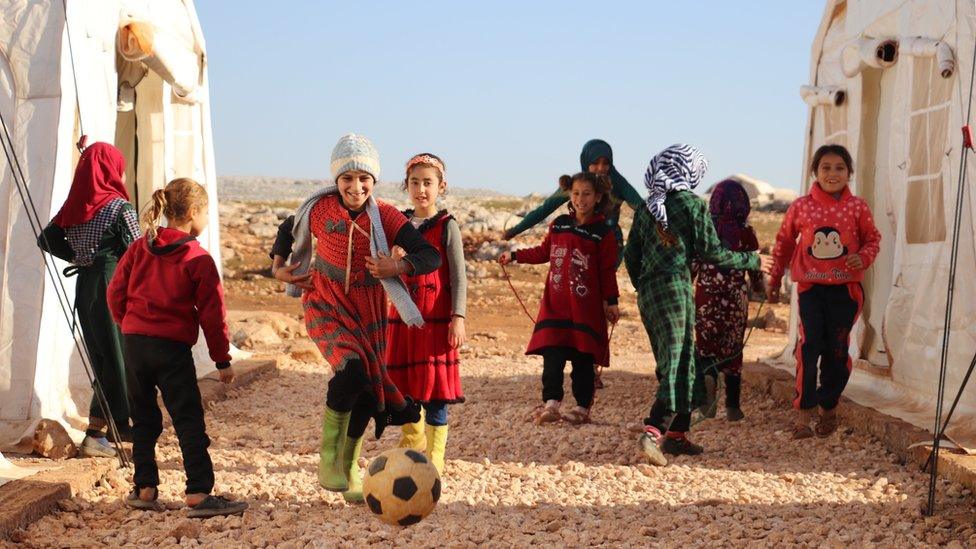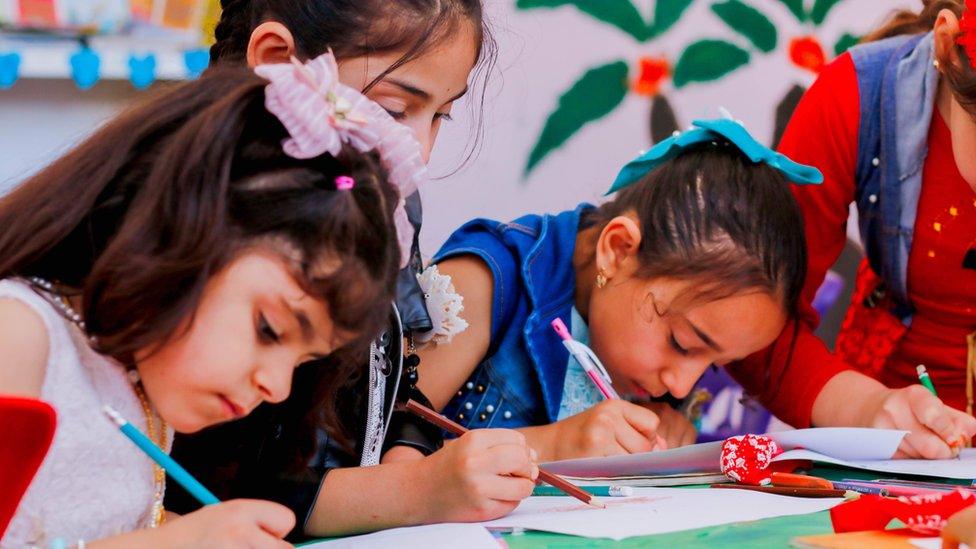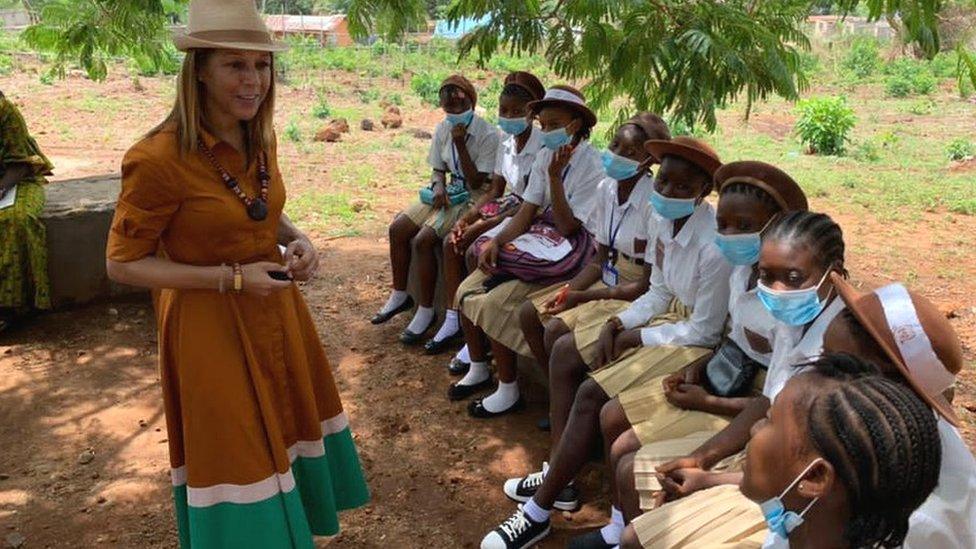School aid for Syrian children who know war planes but not shops
- Published

There are children in Syria whose whole lives have been lived against a background of conflict
Protecting children's education in conflict zones such as Syria is to be supported with £15.8m of UK funding.
There are children at school in Syria who have spent their entire lives in wartime and fearing attack.
A Syrian education project leader said there were children who did not know what a shopping mall was - but who could identify every war plane.
Foreign Secretary Dominic Raab said the aid would help some of the "world's most vulnerable children".
But aid agencies have previously called on the government to reverse its cuts in the overall aid budget - with a group of prominent Conservative MPs trying to overturn the cut from 0.7% to 0.5% of national income.
The Syrian Education Programme, supported by UK aid and operating in opposition-held north-west Syria, has helped to keep children in school, pay teachers and address the psychological problems of children during the decade-long conflict.
'Window to the world'
"The other day I was discussing a reading activity for children and we had the word for 'shopping mall' - and the children did not know what that meant," said a Syrian project leader, working with pupils who have grown up with war as a constant background.
But he said the same children could identify any type of military plane from the sound they made - in a place where conflict and people being made refugees had been their experience of childhood.
"That's not how children should be raised," the Syrian project leader told the BBC, remaining anonymous for security reasons.

Schools have been a "lifeline" for children in war zones
"They need to know what's happening outside. They have lost a lot, but believe me, when you speak to the teachers, they have high expectations.
"They think education is the window to the world."
Despite schools facing attacks and bombing raids, as well as the Covid pandemic, pupils in this region of a militarily-divided country are still studying and taking exams.
This is giving children "hope and skills, protection, confidence and self-esteem", said Helen Grant, the UK prime minister's special envoy for girls' education.
'Traumatised'
"When they get to school they've often been traumatised because of the bombings," said Mrs Grant, and even if the "school" is only a space in a tent, it becomes a "lifeline" where children can make friends and rebuild their self-confidence.

Helen Grant, the UK prime minister's special envoy for girls' education, visiting a school in Uganda
Keeping schools open is a chance to break the "cycles of poverty" for families, said Mrs Grant, who warned that girls were particularly vulnerable to missing out on school in such conflict zones.
"Schools are very much providing hope and a sense of optimism and a future - and that is desperately, desperately needed," said the special envoy and MP.
Many teachers in this part of Syria have to work unpaid - and the project leader said continuing to volunteer to go to school for these teachers was "an act of defiance, an act of faith".
But he welcomed the aid funding which would pay teachers - otherwise they would eventually have to close schools and get other jobs.
Girls at risk
The £15.8m funding announced by the UK government will focus on finding effective ways to sustain education in places with major, long-running disruptions, such as wars, political violence, refugees being pushed over borders or natural disasters.
As well as Syria, this will support education in northern Nigeria, Jordan, Myanmar, South Sudan and Lebanon.
"Children living in conflicts and protracted, long-term crisis settings are without any doubt some of the most vulnerable in the world," said Mrs Grant.
And girls are particularly at risk, she said, more likely to miss out on school and in danger of sexual violence, early marriage and human trafficking.
The funding comes from £400m previously earmarked for supporting girls' education and there will also be £430m aid from the UK for the Global Partnership for Education, an international co-ordinating body which aims to raise $5bn (£3.5bn) at an education summit this month.